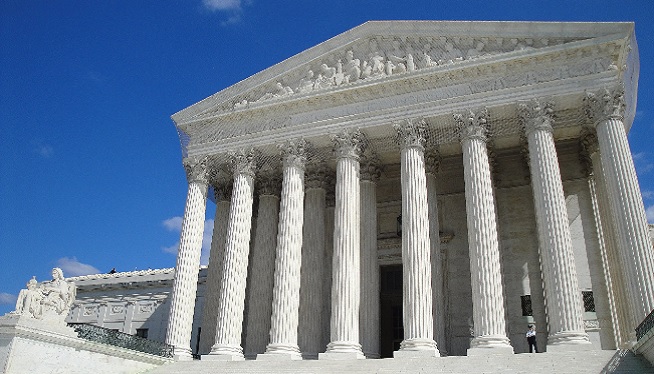WASHINGTON — (CNN) The Affordable Care Act, better known as Obamacare, has seen its fair share of challenges from likely suspects such as GOP political opponents, conservative think tanks and closely held for-profit businesses like Hobby Lobby. On Wednesday, however, the Supreme Court will hear a challenge to the law that comes from unlikely quarters: an order of nuns called the Little Sisters of the Poor.
At issue is the law’s requirement that group health plans provide a full range of contraceptive coverage to women at no cost. Lawyers for the nuns as well as other non-profit religious groups say the so-called contraceptive mandate forces them to either violate their religious beliefs by providing “abortifacients and contraceptives” or pay ruinous fines. Although the Obama administration has offered them an accommodation meant to respect their religious objections, the groups argue it is not good enough because it still makes them complicit in providing the coverage.
It’s the fourth time the Supreme Court has heard a challenge to Obamacare, and Wednesday’s case is the second one to target the mandate. A ruling in favor of the nuns would not threaten the balance of the entire law, but their lawyers and supporters hope it will bolster their religious liberty concerns. The challenge actually consists of seven consolidated cases brought by the groups who lost in the lower courts.
Wednesday’s oral arguments are the first related to Obamacare since the sudden death last month of Justice Antonin Scalia, who voted against the Obama administration and the Affordable Care Act in the three previous cases. The fact that only eight justices will hear the case raises the possibility that the justices might be equally divided which would mean the court would simply affirm the lower court rulings at hand but set no national precedent.
In 2014, a divided 5-4 court ruled that Hobby Lobby, a closely held for profit company, did not have to provide contraceptive coverage that violated the religious beliefs of the owners.
If they are split, the justices could also decide to order that the case be argued again next term with the hope that by then Scalia’s seat will be filled. President Barack Obama has nominated Judge Merrick Garland to the bench, but Senate Republicans say they have no interest in holding hearings or voting on Garland before the presidential election.
What does the law require?
In court papers, Solicitor General Donald Verrilli argues that when Congress passed the law, it determined that preventive services for women were “critical” to improving public health. As such, the Department of Health and Human Services determined that group health plans provide a full range of contraceptive coverage at no cost.
The law exempts houses of worship from the mandate, but only offers an accommodation to non-profit groups who raised religious objections. Under the accommodation, a religious non-profit must first notify the group that issues its health plan, or HHS, that it has a religious objection. After the notification, either the insurance plan or a third party administrator becomes responsible for providing the birth control coverage directly.
“The accommodation made available under the Affordable Care Act respects religious liberty by allowing objecting employers to opt out of the generally applicable requirement to provide contraceptive coverage,” Verrilli wrote. He said the accommodation also respects the “rights, dignity and autonomy of female employees” by providing “full and equal” health coverage.
But the groups say the accommodation is not good enough and would force them to facilitate and encourage wrongdoing.
They say the government is violating the Religious Freedom Restoration Act, a 1993 law that prohibits the government from imposing a substantial burden on religious exercise unless doing so is the least restrictive means of furthering a compelling government interest.
In briefs, lawyers say they want an exemption from the law similar to what is already being offered to the houses of worship, some small businesses and grandfathered plans.
“Truly exempt organizations do not need to comply with the mandate at all,” argues Paul Clement, a lawyer for the nuns, in court papers. “They need not execute or deliver paperwork empowering anyone to use their plan infrastructure to provide contraceptive coverage, nor even notify the government of their desire for an exemption,” he said.
Last year, when Pope Francis visited Washington, he took time out of his schedule to meet with the nuns. A Vatican spokesman said the visit was meant as a “sign of support.”
A decision is expected by July.
The-CNN-Wire ™ & © 2016 Cable News Network, Inc., a Time Warner Company. All rights reserved. (PHOTO: CNN)





















